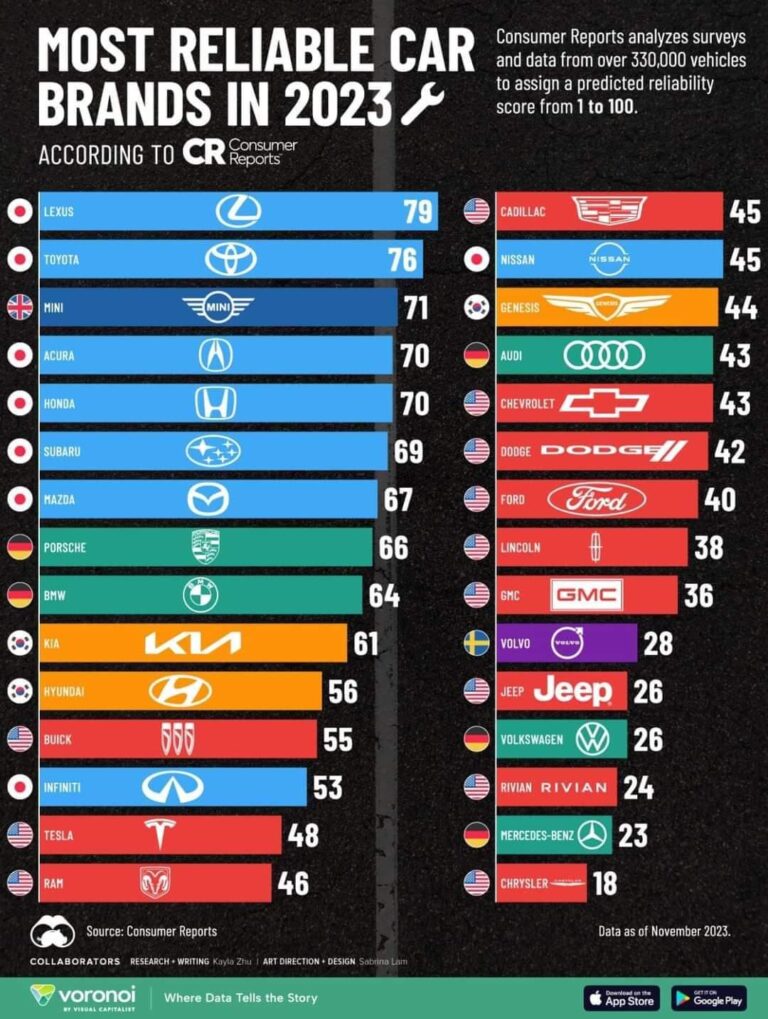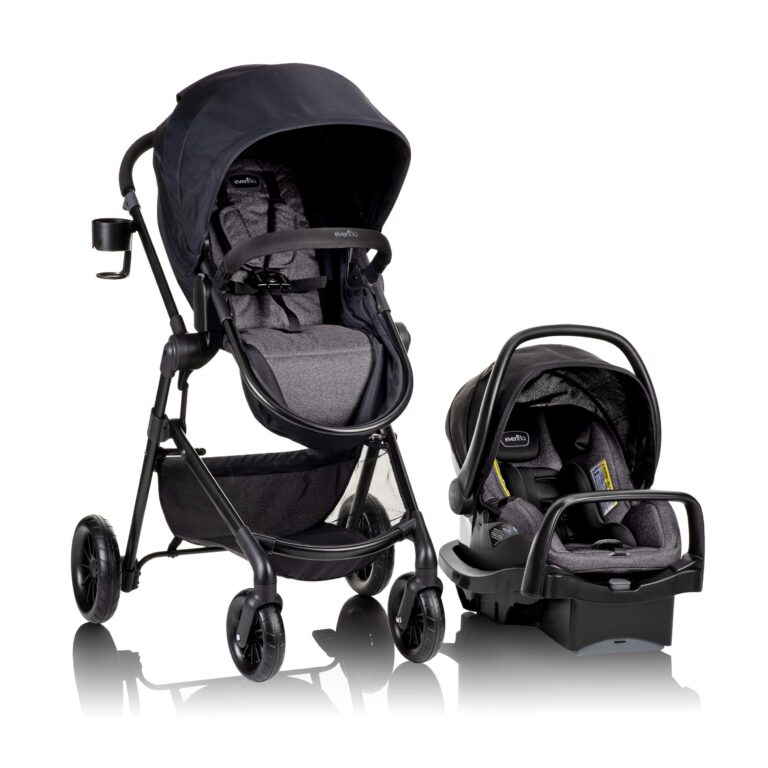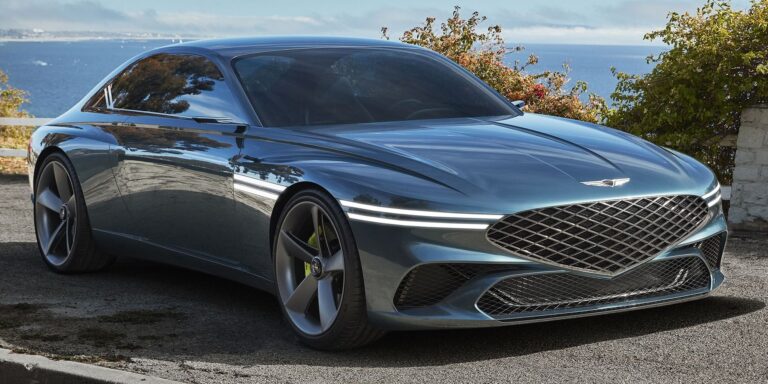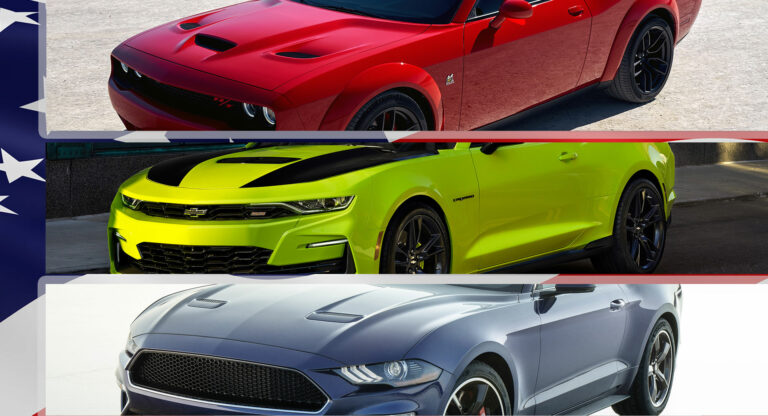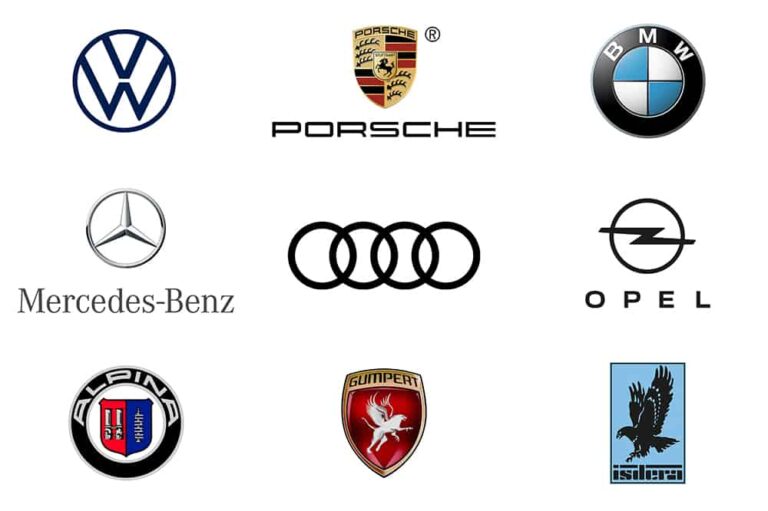Car Tint Brands: A Comprehensive Guide to Enhancing Your Ride
Car Tint Brands: A Comprehensive Guide to Enhancing Your Ride cars.truckstrend.com
The sleek, often mysterious allure of tinted windows on a car is more than just an aesthetic choice. It’s a practical investment in comfort, privacy, and protection. Car window tint, essentially a thin film applied to the inside of your vehicle’s glass, plays a crucial role in blocking harmful UV rays, reducing heat buildup, mitigating glare, and enhancing the overall security and appearance of your vehicle. However, the world of car tint is vast, and not all films are created equal. The brand behind the tint film significantly impacts its performance, durability, and optical clarity. Choosing the right car tint brand is paramount to ensuring you get the benefits you expect and that your investment lasts.
This comprehensive guide will delve into the intricacies of car tint brands, exploring what makes them stand out, the types of films they offer, and how to make an informed decision that perfectly suits your needs and budget.
Car Tint Brands: A Comprehensive Guide to Enhancing Your Ride
Understanding Car Tint: More Than Just Dark Glass
At its core, car tint is a multi-layered polyester film designed to adhere seamlessly to automotive glass. While its primary function is often perceived as merely darkening windows for privacy, modern tint technology offers a spectrum of benefits far beyond simple aesthetics:
- UV Protection: High-quality tints block up to 99% of UVA and UVB rays, protecting occupants from skin damage and the vehicle’s interior from fading and cracking.
- Heat Reduction: By rejecting solar energy, tint films can significantly reduce the internal temperature of your car, leading to a more comfortable ride and reduced reliance on air conditioning.
- Glare Reduction: Tint minimizes harsh glare from the sun, headlights, and reflective surfaces, improving driving visibility and reducing eye strain.
- Privacy and Security: Darker tints deter prying eyes, safeguarding your valuables and providing a sense of personal space. In the event of an accident, the film can also hold shattered glass together, preventing shards from flying and causing injury.
- Aesthetics: Tint gives any vehicle a more polished, customized, and upscale look.
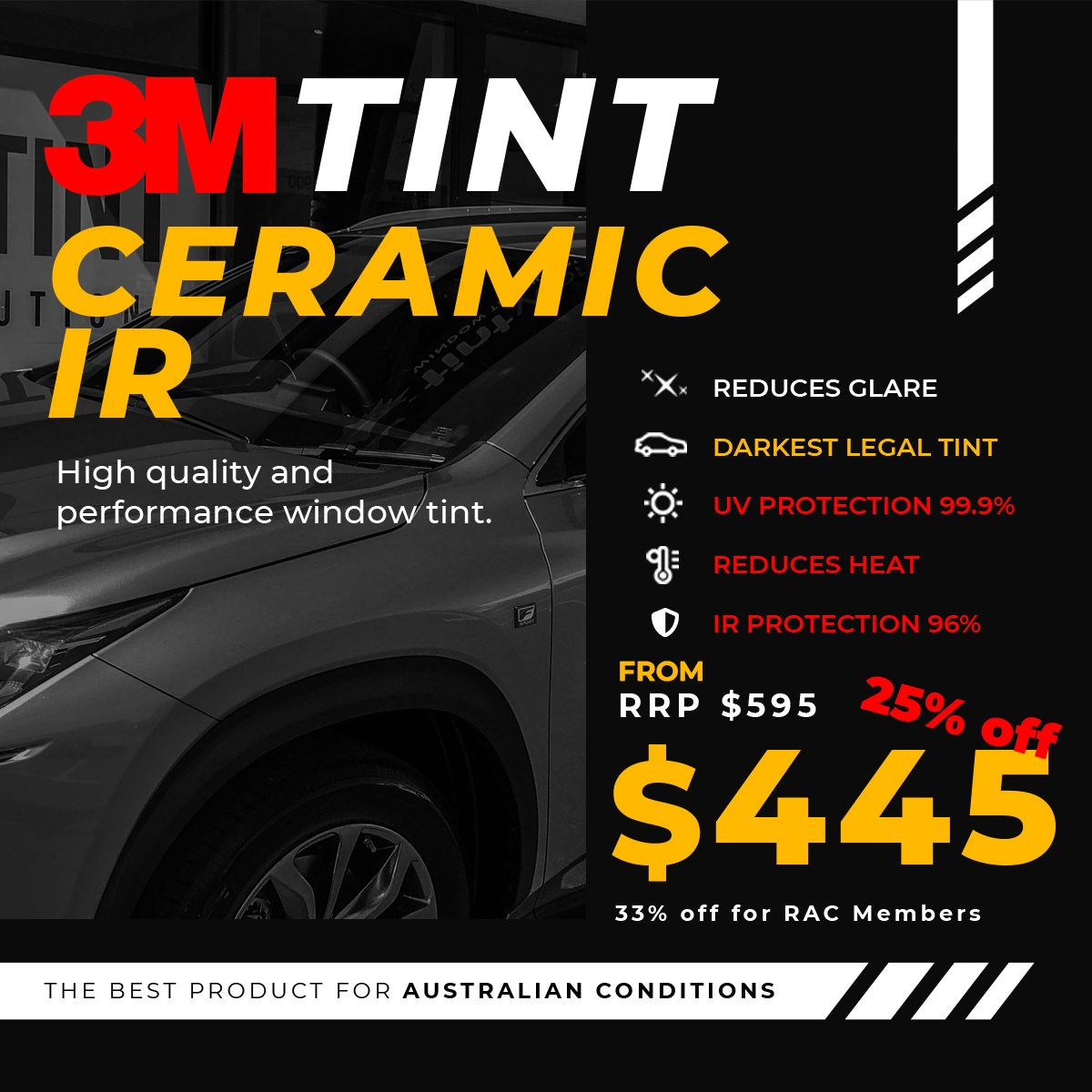
The effectiveness of these benefits hinges on the quality of the film, which is directly tied to the manufacturing brand. Premium brands invest heavily in research and development, resulting in films with superior performance and longevity.
Key Factors When Choosing a Car Tint Brand
Before you commit to a specific tint brand, it’s essential to understand the criteria that differentiate them. A reputable brand will excel in these areas:
- Performance (Heat Rejection & UV Protection): This is the most critical functional aspect. Look for brands that offer high Total Solar Energy Rejected (TSER) percentages for heat and near 100% UV rejection.
- Durability & Longevity: Quality tint should resist fading, bubbling, peeling, and scratching over time. Reputable brands use advanced adhesives and scratch-resistant coatings.
- Clarity & Optical Quality: The tint should provide excellent visibility from the inside out, without distortion, haze, or a cloudy appearance. Inferior films can impair vision.
- Warranty: A strong warranty is a hallmark of a confident manufacturer. Look for lifetime warranties against bubbling, peeling, cracking, and color change, offered directly by the brand.
- Legality (VLT% Compliance): Vehicle Light Transmittance (VLT) refers to the percentage of visible light that passes through the tinted window. Laws vary by state and country regarding the legal VLT for different windows. Top brands produce films that adhere to these regulations, and professional installers will guide you on compliant options.
- Cost vs. Value: While cheaper options exist, they often compromise on performance and durability. Investing in a premium brand typically means a higher upfront cost but better long-term value, avoiding premature fading or replacement.


Top Car Tint Brands on the Market
The market for car tint is competitive, with several brands establishing themselves as industry leaders through consistent innovation and quality. Here are some of the most highly regarded:
1. 3M Automotive Window Film
- Reputation: A global conglomerate known for innovation across many industries, 3M brings its scientific expertise to automotive films. They are pioneers in window film technology.
- Key Strengths: Exceptional clarity, advanced heat rejection, and a wide range of products catering to different needs and budgets. Their films are known for color stability and durability.
- Popular Product Lines:
- Crystalline Series: Their flagship non-metalized film, offering incredible heat rejection (up to 97% IR rejection) with very light shades, virtually invisible. No signal interference.
- Ceramic IR Series: A high-performance ceramic film providing excellent heat rejection, glare reduction, and UV protection without signal interference.
- Color Stable Series: A carbon-based film that will never turn purple, offering good heat rejection and a sleek charcoal look.
- FX Premium Series: A more economical dyed film with good UV protection and glare reduction.
- Why Choose: For those seeking cutting-edge technology, particularly in heat rejection and optical clarity, 3M is a top-tier choice.
2. LLumar & FormulaOne by LLumar
- Reputation: A brand under the Eastman Performance Films umbrella, LLumar is one of the world’s largest manufacturers of window film. FormulaOne is their premium line, exclusively sold through a select dealer network.
- Key Strengths: Known for a comprehensive range of high-performance films, excellent clarity, superior scratch resistance, and robust warranties.
- Popular Product Lines:
- FormulaOne Stratos™ & Pinnacle® (Premium): These ceramic films offer industry-leading heat rejection (especially Stratos with multi-layer ceramic technology), superior clarity, and signal-friendly performance.
- LLumar IRX™ Series: A high-performance ceramic film available through LLumar dealers, offering advanced infrared rejection.
- LLumar ATC Series: A carbon-based film offering good heat rejection, color stability, and a non-metalized construction.
- LLumar ATR Series: A metallized film providing strong heat rejection but with potential for signal interference.
- Why Choose: LLumar and FormulaOne offer a fantastic balance of performance, durability, and aesthetic appeal across a broad price spectrum, with FormulaOne being a top choice for uncompromising quality.
3. SunTek Window Films
- Reputation: Also part of Eastman Performance Films, SunTek is well-regarded for its innovative technologies and a strong balance of performance and value.
- Key Strengths: Known for their advanced ceramic and carbon films that provide excellent heat rejection and clarity without being overly expensive. Good color stability.
- Popular Product Lines:
- Ceramic IR Series: SunTek’s premium ceramic film, delivering high infrared rejection and TSER for maximum heat control, without signal interference.
- Carbon XP Series: A non-metalized carbon film offering excellent heat rejection, UV protection, and a rich black finish that won’t fade or turn purple.
- CXPS Series: A hybrid carbon/ceramic blend offering enhanced performance.
- Standard Pro: A dyed film for basic needs and budget-conscious consumers.
- Why Choose: SunTek is a strong contender for those seeking high-performance films, particularly ceramic and carbon, at a slightly more accessible price point compared to some ultra-premium options, without sacrificing quality.
4. Xpel Prime Window Tint
- Reputation: While widely known for its Paint Protection Film (PPF), Xpel has rapidly gained a strong foothold in the window tint market with its premium offerings.
- Key Strengths: Exceptional heat rejection, optical clarity, and a reputation for durability. Their films are often described as having a very clean, factory-like appearance.
- Popular Product Lines:
- Prime XR Plus: Their top-tier ceramic film, offering superior heat rejection (up to 98% IR rejection), UV protection, and signal-friendly performance. Designed for maximum comfort.
- Prime XR Black: A ceramic film with slightly less extreme performance than XR Plus but still excellent, offering great heat rejection and a sleek black look.
- Prime CS: A carbon-based film offering good heat rejection and color stability, serving as a reliable entry into their product line.
- Why Choose: Xpel is ideal for consumers who prioritize maximum performance, particularly in heat rejection, and desire a film that complements the high-end finish often associated with their PPF products.
5. Huper Optik
- Reputation: A German brand known for pioneering multi-layered ceramic technology. Huper Optik films are often considered among the most technologically advanced and high-performing.
- Key Strengths: Unrivaled heat rejection and UV protection due to their patented multi-layer ceramic construction. They are non-metalized, ensuring no signal interference, and offer exceptional optical clarity.
- Popular Product Lines:
- Ceramic Series (Drei, Sech, Acht): These films use multiple layers of ceramic particles to block solar heat while maintaining high visible light transmission, perfect for those who want clear windows but maximum heat rejection.
- Select Series: Combining precious metals with ceramics for unique performance characteristics.
- Why Choose: Huper Optik is for the discerning consumer who wants the absolute best in heat rejection technology and is willing to invest in a premium, high-performance solution.
6. Rayno Window Film
- Reputation: A newer but rapidly growing brand from Korea, Rayno has quickly made a name for itself with innovative nano-carbon ceramic technology.
- Key Strengths: Known for their advanced nano-carbon ceramic films that offer excellent heat rejection, durability, and a unique blend of carbon and ceramic properties.
- Popular Product Lines:
- Phantom Series (S5, S7, S9): Their flagship line, with S9 being the top performer. These films combine nano-carbon and ceramic particles for superior heat rejection, clarity, and color stability. They are non-metalized.
- MonoCarbon: A pure carbon film offering good performance and a stable color.
- Why Choose: Rayno offers cutting-edge nano-technology for those looking for high-performance ceramic films with excellent value, challenging established brands.
Types of Car Tint Films Offered by Brands
Beyond the brand name, understanding the type of film is crucial, as each offers distinct performance characteristics and price points. Most leading brands will offer variations of these:
- Dyed Film: The most basic and affordable. It absorbs solar heat and offers good privacy. However, it tends to fade and turn purple over time and offers the least heat rejection.
- Metallized Film: Contains microscopic metal particles that reflect solar heat. Offers good heat rejection and scratch resistance. The main drawback is potential interference with GPS, radio, and cell phone signals.
- Carbon Film: Infused with carbon particles, this film offers excellent heat rejection without the signal interference of metallic films. It has a matte finish, provides a rich black look, and won’t fade or turn purple.
- Ceramic Film: The premium choice. It contains non-conductive ceramic particles that effectively block infrared (IR) heat and UV rays without interfering with electronic signals. Offers superior clarity, durability, and heat rejection.
- Hybrid Films: A combination of technologies, often dyed and metallized, to balance performance and cost.
- Crystalline/Multi-Layer Films: Often a subset of ceramic, these films are designed to be very clear (high VLT) while still offering extremely high IR heat rejection. Ideal for windshields or those who want performance without a dark appearance.
The Installation Process: Why Professional Installation Matters
Even the highest quality film from a top brand can perform poorly if installed incorrectly. Professional installation is non-negotiable for several reasons:
- Expertise: Trained installers have the tools, environment (dust-free), and experience to perfectly cut, heat-mold, and apply the film without bubbles, creases, or dust contamination.
- Warranty Validity: Most brand warranties are only valid when the film is installed by an authorized dealer.
- Legal Compliance: Professionals are knowledgeable about local VLT laws and can ensure your tint is compliant.
- Flawless Finish: A professional job results in a factory-like finish that looks seamless and lasts for years.
Many reputable tint brands work exclusively through authorized dealer networks, ensuring their products are installed to their exacting standards.
Maintenance and Longevity of Your Car Tint
Once your high-quality tint from a reputable brand is installed, proper care ensures its longevity:
- Curing Time: Allow 3-5 days (longer in cold weather) for the film to fully cure before rolling down windows or cleaning.
- Cleaning: Use only ammonia-free glass cleaner and a soft microfiber cloth. Ammonia can break down the tint’s adhesive and cause bubbling or hazing.
- Avoid Abrasives: Do not use harsh chemicals, abrasive pads, or sharp objects on the tinted surface.
- Inspect Regularly: Keep an eye out for any signs of bubbling, peeling, or fading, which should be covered by your warranty if you chose a good brand and installer.
Navigating Legalities: VLT and Local Regulations
Before selecting a tint, always check your local Vehicle Light Transmittance (VLT) laws. These regulations dictate how dark your windows can legally be. VLT is measured as the percentage of light that passes through the window. For example, 35% VLT means 35% of light passes through, making it darker than 50% VLT. Front side windows, rear side windows, and rear windows often have different legal limits. Reputable tint brands offer films in various VLT percentages, and a professional installer will ensure your chosen film complies with local laws. Non-compliance can result in fines and the need to remove the tint.
Practical Advice and Actionable Insights
- Define Your Needs: Are you primarily concerned with heat rejection, privacy, or aesthetics? This will guide your choice of film type (dyed, carbon, ceramic, crystalline) and, consequently, the brands that specialize in those areas.
- Research Brands: Don’t just pick the cheapest option. Research the brands mentioned above and their specific product lines. Read reviews and look for real-world performance testimonials.
- Find a Reputable Installer: The brand is only half the equation; the installer is the other half. Look for certified, experienced installers who offer strong warranties on their workmanship and are authorized dealers for the brands you’re considering.
- Ask Questions: Inquire about the film’s TSER, UV rejection, warranty specifics, and VLT options. Ask to see samples of the film applied to glass to get a true sense of its appearance and clarity.
- Balance Cost and Value: While premium ceramic films cost more, their superior performance, durability, and lifetime warranties often make them a more cost-effective long-term investment.
Car Tint Brands: Estimated Price Table
Please note: These prices are estimates only and can vary significantly based on your geographic location, the specific installer’s rates, the vehicle make and model (e.g., more complex curves, more windows), and current market conditions. Always get a detailed quote from a certified installer. Prices typically include installation.
| Film Type Category | Typical Brands/Examples | Key Features | Estimated Price Range (Sedan/Small SUV) | Estimated Price Range (Large SUV/Truck) |
|---|---|---|---|---|
| Dyed Film | 3M FX Premium, SunTek Standard Pro, Generic Brands | Basic privacy & glare reduction; most affordable; prone to fading; low heat rejection. | $150 – $250 | $200 – $350 |
| Carbon Film | 3M Color Stable, SunTek Carbon XP, Xpel Prime CS, Rayno MonoCarbon | Good heat rejection; no signal interference; color stable (won’t fade purple); rich black look. | $250 – $400 | $350 – $550 |
| Ceramic Film | 3M Ceramic IR, LLumar IRX, SunTek Ceramic IR, Xpel Prime XR Black, Rayno Phantom S5/S7 | Excellent heat & IR rejection; no signal interference; superior clarity; highly durable. | $400 – $650 | $550 – $850 |
| Premium Ceramic/Crystalline Film | 3M Crystalline, LLumar FormulaOne Stratos/Pinnacle, Xpel Prime XR Plus, Huper Optik Ceramic Series, Rayno Phantom S9 | Top-tier heat/IR rejection (often highest TSER); exceptional clarity (even in light shades); ultimate comfort & UV protection. | $650 – $1000+ | $800 – $1200+ |
Note: Windshield tinting (often clear/light VLT crystalline) is typically an additional cost, ranging from $150-$400 depending on film type and vehicle complexity.
Frequently Asked Questions (FAQ) about Car Tint Brands
Q1: What is VLT, and why is it important?
A1: VLT stands for Visible Light Transmittance, which is the percentage of visible light that passes through your car windows. It’s crucial because every state/country has specific legal limits for VLT on different windows (front, rear, windshield). Choosing a reputable brand ensures access to films that comply with these laws, and a professional installer will guide you on legal options.
Q2: How long does car tint typically last?
A2: The lifespan of car tint largely depends on the brand and type of film. High-quality ceramic or carbon films from reputable brands (like 3M, LLumar, Xpel, SunTek) often come with lifetime warranties against bubbling, peeling, cracking, and color change, meaning they can last the lifetime of your vehicle. Cheaper dyed films might only last 3-5 years before fading or deteriorating.
Q3: Can car tint affect my GPS, radio, or cell phone signals?
A3: Yes, some types of tint can. Metallized films, which contain tiny metal particles, can interfere with electronic signals. However, carbon and ceramic films are non-metalized and are specifically designed not to interfere with GPS, cell phones, satellite radio, or other electronic devices. This is why premium brands often highlight their signal-friendly ceramic and carbon options.
Q4: Is expensive tint worth the investment?
A4: Generally, yes. While the initial cost is higher, premium tint brands offer significantly better performance (especially in heat rejection and UV protection), superior optical clarity, and much greater durability. They often come with comprehensive lifetime warranties, saving you money in the long run by avoiding premature replacement due to fading, bubbling, or peeling.
Q5: How long after installation can I roll down my windows?
A5: Most professional installers recommend waiting at least 3 to 5 days, and sometimes up to a week, before rolling down your windows. This "curing" period allows the adhesive to fully dry and bond to the glass, preventing the film from shifting, bubbling, or peeling. The exact time can depend on humidity and temperature conditions.
Q6: Will car tint provide privacy at night?
A6: Car tint primarily provides privacy during the day. At night, if there is more light inside your vehicle than outside (e.g., interior lights on, or streetlights shining in), it becomes easier to see into the car, even with dark tint. The darker the tint (lower VLT), the more privacy it offers in general, but it’s not foolproof at night.
Q7: Can I remove old tint myself?
A7: While it’s possible, removing old tint yourself can be very challenging and messy, often leaving behind stubborn adhesive residue. It’s usually best to have a professional remove old tint, especially if it’s deteriorated, as they have the right tools and techniques to do it cleanly and without damaging your windows or defroster lines.
Conclusion
Choosing the right car tint brand is a critical decision that extends far beyond merely darkening your windows. It’s an investment in your comfort, the longevity of your vehicle’s interior, and your personal safety. By understanding the different types of films, the key performance indicators, and the reputations of leading brands like 3M, LLumar, SunTek, Xpel, Huper Optik, and Rayno, you can make an informed choice. Remember that the quality of installation is just as important as the quality of the film itself. By selecting a reputable brand and having it professionally installed, you ensure that your vehicle not only looks great but also provides the superior protection and comfort you deserve for years to come.

